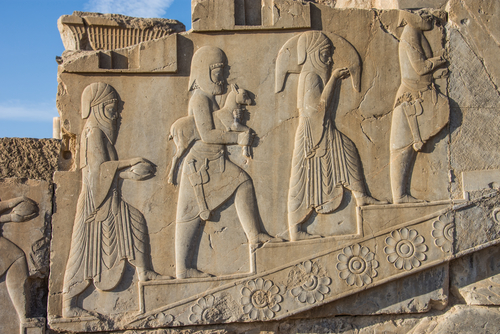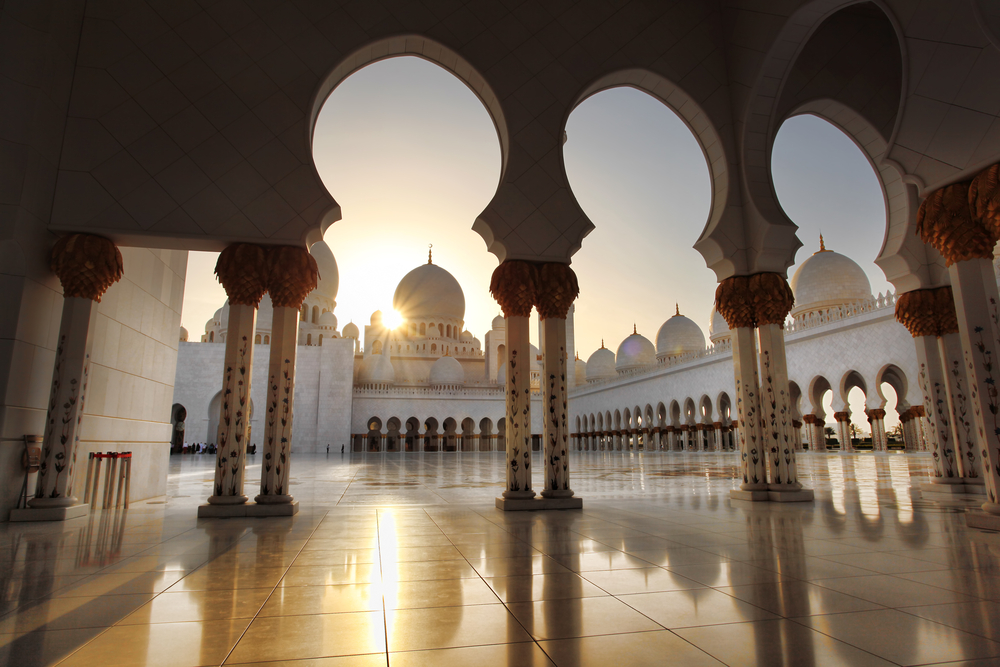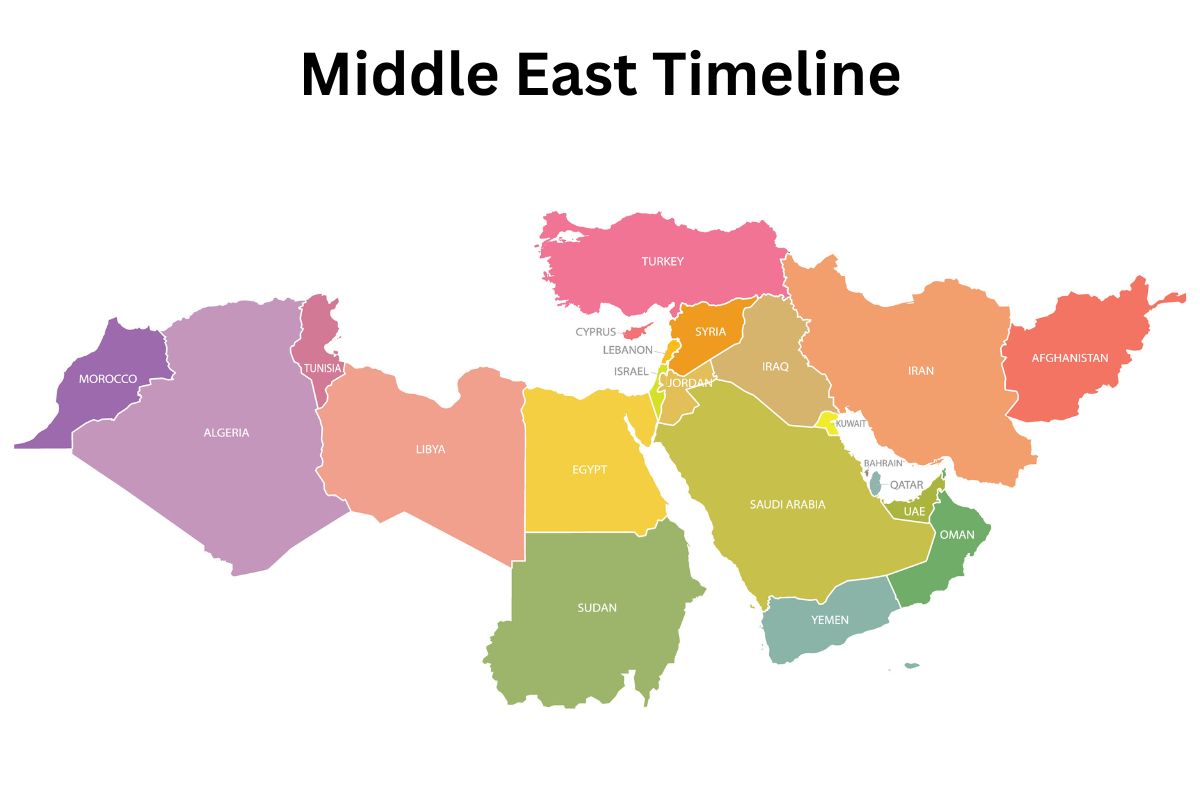The Middle East is a historically rich and geographically diverse region that spans across southwestern Asia, northeastern Africa, and parts of southeastern Europe.
It has been a cradle of ancient civilizations, a hub of cultural exchange, and a center of global geopolitics.
From the emergence of early civilizations in Mesopotamia and ancient Egypt to the rise of Islam, the spread of empires like the Ottoman Empire, and the complex dynamics of the modern era, the Middle East’s history is a tapestry of cultures, religions, conflicts, and innovations.
In this overview, we will explore the key events and periods that have shaped the Middle East’s compelling narrative throughout history.
| Period | Key Events |
|---|---|
| Ancient Civilizations | Mesopotamia: Sumerians, Akkadians, Babylonians, Assyrians Ancient Egypt |
| Persian Empire | The Achaemenid Empire, founded by Cyrus the Great |
| Alexander the Great | Conquests in the Middle East, leading to the Hellenistic period |
| Rise of Islam | Prophet Muhammad’s revelations The Rashidun Caliphate Umayyad Caliphate |
| Abbasid Caliphate | Cultural and scholarly center in Baghdad |
| Crusades | Christian-Muslim conflicts in the Holy Land |
| Mongol Invasions | Mongol conquests in the region |
| Ottoman Empire | Vast empire spanning centuries |
| Colonialism | European colonial rule and mandates |
| World War I | Redrawing of Middle Eastern borders |
| Modern Middle East | Arab-Israeli conflicts Arab nationalism and decolonization Oil discoveries and global geopolitics Conflicts and wars Arab Spring Rise of extremist groups |
Timeline of the Middle East
Ancient Civilizations (circa 3500 BCE – 300 CE):
Mesopotamia: This region, often referred to as the “cradle of civilization,” encompassed the fertile land between the Tigris and Euphrates Rivers in what is now modern-day Iraq. It was home to several remarkable civilizations, including:
- Sumerians (circa 3500 BCE – 2000 BCE): The Sumerians are credited with developing one of the world’s earliest writing systems (cuneiform), as well as creating complex city-states with organized governments, legal codes, and advanced architecture like ziggurats.
- Akkadians (circa 2334 BCE – 2154 BCE): Led by Sargon the Great, the Akkadians conquered Sumer and established one of the first empires in history.
- Babylonians (circa 1894 BCE – 539 BCE): Hammurabi’s Code, a famous legal code, was developed during the reign of the Babylonian king Hammurabi. Babylon also saw the construction of the Hanging Gardens, one of the Seven Wonders of the Ancient World.
- Assyrians (circa 2500 BCE – 609 BCE): Known for their military prowess, the Assyrians built a vast empire in Mesopotamia, using advanced siege warfare techniques and developing a system of communication through a network of clay tablets.
Ancient Egypt: Located in the northeastern corner of Africa, along the Nile River, ancient Egypt is renowned for its monumental architecture, pyramids, and pharaohs. It had a complex society and religion, and its history spans many dynastic periods.

Persian Empire (circa 550 BCE – 330 BCE):
The Persian Empire, founded by Cyrus the Great, was one of the most significant empires in the ancient world. It covered a vast territory, including parts of modern-day Iran, Iraq, Turkey, Egypt, and more.
Also Read: Facts About the Gaza Strip
Under Cyrus and later rulers like Darius the Great, the Achaemenid Empire practiced religious tolerance and established a system of governance that allowed for the integration of diverse cultures and peoples.
The Persian Royal Road, an ancient highway system, facilitated communication and trade across the empire, contributing to its prosperity.
Alexander the Great (circa 330 BCE):
Alexander the Great, a Macedonian conqueror, embarked on an ambitious military campaign that reshaped the political and cultural landscape of the Middle East.
His conquests extended from Greece through Asia Minor, Egypt, and into the heart of Persia, ultimately reaching as far as India.
Also Read: Middle East Facts
The Hellenistic period emerged in the wake of his conquests, blending Greek culture with the indigenous cultures of the conquered regions. This period saw the spread of Greek language, philosophy, and art throughout the Middle East.
Rise of Islam (7th century CE):
The 7th century CE marks the beginning of a significant transformation in the Middle East with the rise of Islam, a monotheistic religion founded by the Prophet Muhammad in the Arabian Peninsula.
Prophet Muhammad’s revelations, recorded in the Quran, emphasized monotheism, social justice, and ethical conduct. His teachings gathered a following, leading to the establishment of the Islamic faith.
After the Prophet’s death, the Rashidun Caliphate was formed, with four caliphs succeeding him. This period saw the rapid expansion of Islamic rule into neighboring territories, including Persia and Byzantine territories.
The Umayyad Caliphate succeeded the Rashidun Caliphate and continued to expand Islamic territories, reaching as far as Spain in the west and India in the east. The Umayyads established a centralized administration in Damascus.
Abbasid Caliphate (8th – 13th century):
The Abbasid Caliphate, established in 750 CE in Baghdad, marked a golden age for Islamic civilization. It was known for its support of scholarship, science, and the arts.
During this time, the House of Wisdom was founded in Baghdad, a center of learning where scholars from various cultures translated and preserved classical Greek and Roman texts, contributing to advancements in mathematics, astronomy, medicine, and philosophy.
The Abbasids also promoted trade along the Silk Road and Indian Ocean, fostering cultural exchanges and economic prosperity.

Crusades (11th – 13th century):
The Crusades were a series of religious wars waged by Christian Europeans against Muslim forces in the Holy Land, primarily Jerusalem, during the medieval period.
The Crusaders launched multiple campaigns, resulting in the establishment of Latin Christian states in the Middle East, including the Kingdom of Jerusalem and the County of Edessa.
These conflicts created lasting cultural and religious tensions in the region, leaving a legacy that continues to influence modern geopolitics.
Mongol Invasions (13th – 14th century):
The Mongol Empire, under leaders like Genghis Khan and his successors, launched invasions into the Middle East in the 13th century.
The Mongols conquered numerous cities, including Baghdad in 1258, which marked a devastating blow to Islamic culture and scholarship. The city’s famous House of Wisdom was destroyed.
Mongol rule in the region was characterized by a combination of destruction and cultural exchanges, as they absorbed elements of Persian and Islamic culture.
Ottoman Empire (14th century – 20th century):
The Ottoman Empire, founded in the 14th century, became one of the most significant and enduring empires in history. It stretched across three continents: Europe, Asia, and Africa, with its capital in Istanbul (formerly Constantinople).
Under leaders like Suleiman the Magnificent, the Ottomans expanded their empire, including capturing key cities such as Constantinople in 1453, which marked the end of the Byzantine Empire.
The Ottoman Empire was known for its diverse and multi-ethnic population, with various religious and ethnic groups coexisting within its borders under the millet system.
By the 19th century, the empire faced internal and external challenges, including territorial losses and reforms. It ultimately dissolved after World War I, leading to the modern Middle Eastern nation-states.
Colonialism (19th – 20th century):
During the 19th and early 20th centuries, European powers, particularly Britain and France, established colonial control over much of the Middle East. This period is often referred to as the “Age of Imperialism.”
The Sykes-Picot Agreement (1916) and the Balfour Declaration (1917) played crucial roles in shaping the post-World War I division of the region into various mandates and spheres of influence.
The effects of colonialism included the imposition of European political systems, economic exploitation, and cultural influences. It also sowed the seeds for future conflicts and nationalist movements.

World War I (1914 – 1918):
World War I had a profound impact on the Middle East. The Ottoman Empire sided with the Central Powers (including Germany and Austria-Hungary) during the war.
The British, in cooperation with Arab leaders like T.E. Lawrence (Lawrence of Arabia), launched the Arab Revolt against the Ottomans, aiming to secure Arab support for the Allies.
After the war, the Ottoman Empire was dismantled, and the Treaty of Sèvres (1920) and later the Treaty of Lausanne (1923) led to the establishment of modern nation-states in the region.
Modern Middle East (20th century – present):
The 20th century and beyond have been marked by significant events and challenges in the Middle East:
- Arab-Israeli conflicts: The creation of the state of Israel in 1948 led to a series of wars and conflicts with neighboring Arab countries.
- Arab nationalism and decolonization: Many countries in the region gained independence from colonial rule during the mid-20th century.
- Oil discoveries and global geopolitics: The Middle East’s vast oil reserves made it a central player in the global economy and geopolitics.
- Conflicts and wars: The region has witnessed numerous conflicts, including the Iran-Iraq War, Gulf War, and ongoing conflicts in Syria, Yemen, and Iraq.
- Arab Spring (2010-2012): A series of protests and uprisings across the region aimed at political reform and change.
- Rise of extremist groups: The emergence of groups like ISIS has had a significant impact on regional stability.
